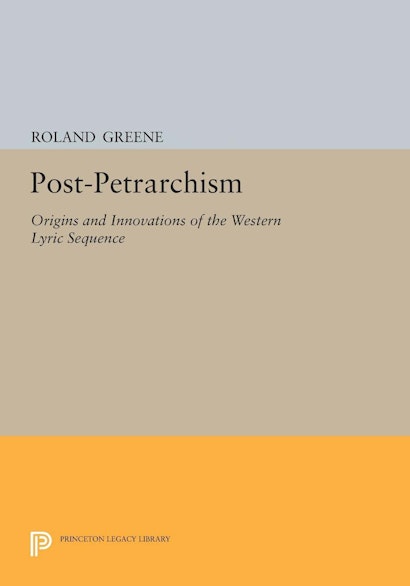Post-Petrarchism: Origins and Innovations of the Western Lyric Sequence


Hardcover
- Price:
- $125.00/£105.00
- ISBN:
- Published:
- Apr 19, 2016
- Copyright:
- 1991
- Pages:
- 306
- Size:
- 7 x 10 in.
Paperback
ebook
Post-Petrarchism offers a theoretical study of lyric poetry through one of its most long-lived and widely practiced models: the lyric sequence, originated by Francis Petrarch in his Canzoniere of the late fourteenth century. A framework in which poems are suspended according to some organizing or unifying principle, the lyric sequence emerges from European humanist culture as a poetic discourse that represents personal experience and operates as a kind of fiction. Here Roland Greene proposes that since Petrarch the lyric sequence has survived in European and American literatures—from Shakespeare’s Sonnets to The Waste Land to Trilce—as a complex in which formal, generic, and cultural designs intersect, and as an embodiment of lyric discourse at its most extensive, inclusive, and ambitious. Enabled by a theoretical introduction to the genre at large, the book treats the founding and elaboration of the vernacular sequence in six major texts by Petrarch, Philip Sidney, Edward Taylor, Walt Whitman, W. B. Yeats, Pablo Neruda, and Martin Adan. Throughout Greene shows how Petrarchism has evolved as lyric discourse through its exposure to such events as the Reformation and Puritanism, the settlement of the New World, and the various modernisms of Europe and the Americas.
Originally published in 1991.
The Princeton Legacy Library uses the latest print-on-demand technology to again make available previously out-of-print books from the distinguished backlist of Princeton University Press. These editions preserve the original texts of these important books while presenting them in durable paperback and hardcover editions. The goal of the Princeton Legacy Library is to vastly increase access to the rich scholarly heritage found in the thousands of books published by Princeton University Press since its founding in 1905.